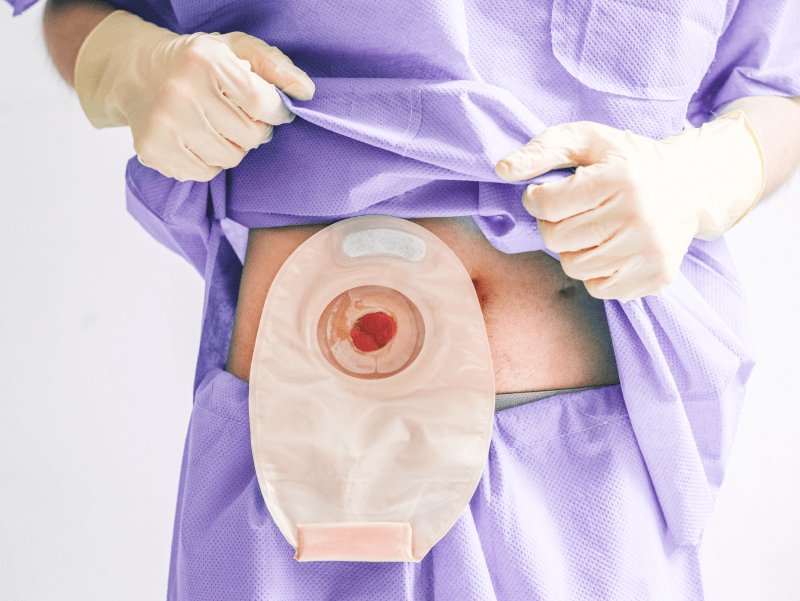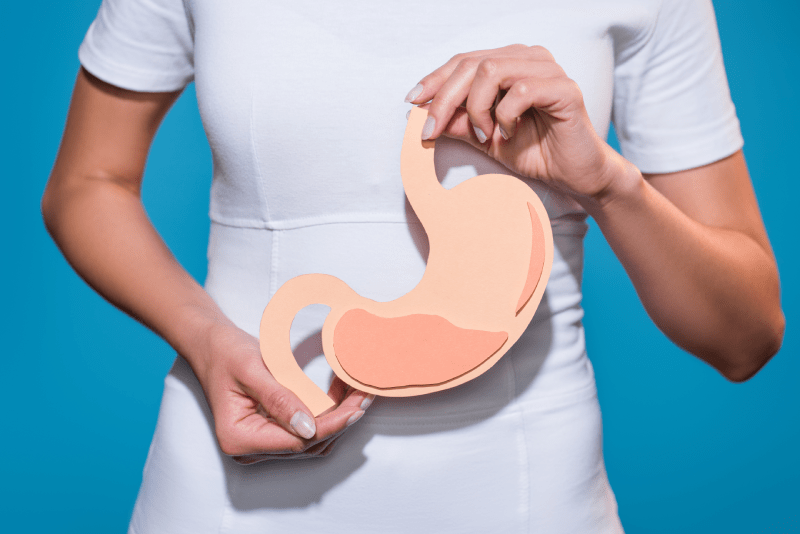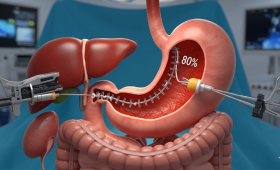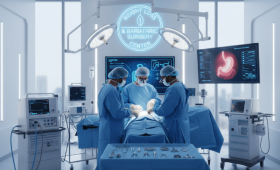What Is Gastric Sleeve Surgery And How Is It Performed?
Gastric sleeve surgery is a bariatric procedure where approximately 75-80% of the stomach is surgically removed, turning the remaining stomach into a thin, tube-like shape similar to a banana. This operation is usually performed using the laparoscopic (keyhole) method, meaning it is done through small incisions. The primary mechanism is twofold: significantly reducing the volume of the stomach to ensure the patient feels satiety with less food, and removing the section of the stomach that secretes ghrelin, the hormone known as the hunger hormone. This effect is key to accelerating the weight loss process by both facilitating portion control and reducing appetite. The procedure significantly improves the quality of life for many individuals.
How Are Kusadasi Gastric Sleeve Surgery Prices Determined?
Gastric sleeve surgery prices in Kusadasi, similar to other major cities in Turkey, are dependent on various factors. The main factors affecting pricing include the class of the hospital where the operation will be performed (private or fully equipped), the quality of the medical consumables used, and the experience and expertise of the surgical team. Furthermore, whether additional services such as detailed pre-operative tests, anesthesia fee, duration of hospital stay, and post-operative nutritional counseling are included in the price is also a determining factor. Kusadasi being an intensive area for health tourism often results in prices being offered to foreign patients in the form of all-inclusive packages.
Who Is Suitable For This Surgery?
Gastric sleeve surgery is generally suitable for individuals with a Body Mass Index (BMI) of 40 or higher, or those with a BMI between 35 and 40 who also have serious obesity-related health problems such as diabetes, high blood pressure, or sleep apnea. However, every patient must be evaluated individually. The patient’s readiness to change their lifestyle after surgery, psychological soundness, and willingness to comply with a lifelong follow-up program are also prerequisites for surgical suitability. Smoking and alcohol consumption habits are also important considerations in the suitability assessment.
What Is The Duration Of The Hospital Stay After Surgery?
The duration of hospital stay after gastric sleeve surgery usually ranges between 3 to 5 days. This period depends on the patient’s general health status, the success of the operation, and whether potential post-operative complications arise. During this time, patients are closely monitored by the medical team, pain management is provided, and the stages of transitioning to liquid nutrition are observed. Most modern facilities in Kusadasi offer accommodation in private rooms designed to provide patients with a comfortable and peaceful recovery process.
How Much Weight Loss Is Expected After The Surgery?
Expected weight loss after gastric sleeve surgery is typically the loss of 60% to 80% of the patient’s excess weight within the ** first 12 to 18 months**. The rate of weight loss is highest in the initial months and gradually slows down over time. The key to success is not just the surgery itself but the patient’s compliance with the nutritional rules set by the dietitian, vitamin supplements, and regular physical activity. Patients who adopt a healthy lifestyle during this period can reach their targeted weight loss ratios much more easily and permanently.
Are Scars Left After Gastric Sleeve Surgery?
Since gastric sleeve surgery is mostly performed using the laparoscopic (keyhole) method, only small, millimetric incisions are left on the abdomen. Generally, 5 to 6 small incision scars form, which largely fade over time, becoming almost invisible. Aesthetically, these small scars are much less noticeable compared to open surgery. Using scar care creams and protecting them from the sun during the recovery period is highly important for ensuring the scars remain minimal. Therefore, keyhole methods offer a significant advantage for patients concerned about cosmetics.
What Are The Possible Risks After Surgery?
Gastric sleeve surgery, like any major surgical procedure, carries certain risks. These risks include leakage (from the staple line), infection, bleeding, anesthesia-related complications, and lung problems. However, these risks are minimized in modern hospitals in Turkey with experienced bariatric surgery teams. The most critical risk to watch for in the early post-operative period is the possibility of leakage from the staple line. Patients’ compliance with all doctor’s instructions and early mobilization play a vital role in managing risks.

Why Should Kusadasi Be Preferred For Gastric Sleeve Surgery?
There are several reasons why Kusadasi should be preferred for gastric sleeve surgery. Chief among them are the developed health tourism infrastructure of the region and cost-effective treatment options. Furthermore, spending the post-operative recovery period in a peaceful and morale-boosting holiday atmosphere positively affects the patients’ motivation and psychological health. The presence of experienced surgical teams, hospitals meeting international standards, and translation services offered to foreign patients make Kusadasi an attractive destination for health.
What Tests Are Required Before The Surgery?
The tests required before gastric sleeve surgery are necessary for a detailed evaluation of the patient’s overall health status. These tests include complete blood count, liver and kidney function tests, hormone levels, EKG for heart health, and in some cases, a chest X-ray. Additionally, pre-anesthesia evaluation, endoscopy (imaging the stomach), and a psychologist’s evaluation are also mandatory steps. This comprehensive screening helps identify potential risks for the operation to be performed safely.
How Should The Post-Operative Nutrition Plan Be?
The post-operative nutrition plan changes gradually within a strict protocol. For the first few weeks, only clear liquids (water, sugar-free broth) are consumed. This is followed by pureed foods (yogurt, pureed vegetables) and then soft solids (boiled chicken, fish). Normal solid foods are resumed after about a month. The main goal of this process is to ensure the new stomach heals without damage and to acclimate the patient to the habit of eating small amounts frequently. Dietitian follow-up is indispensable throughout this process.
What Are The Long-Term Advantages Of Having Surgery In Turkey?
The long-term advantages of having gastric sleeve surgery in Turkey extend beyond cost-effectiveness. Most Turkish clinics allow patients access to lifelong follow-up programs. This means you can receive continuous support on nutrition, psychology, and physical activity after the surgery. Furthermore, since Turkey’s geographical location is close to Europe and Asia, traveling for check-up visits is easier and more economical. The quality of health tourism guarantees professional and reliable care in the long term.
Is There A Risk Of Regaining Weight After The Surgery?
Yes, there is a risk of regaining weight after gastric sleeve surgery. This risk can begin approximately 2 years after the operation and is generally associated with the patient deviating from the post-operative rules. Although the surgery reduces the stomach’s volume, if the patient continues to force the stomach’s capacity with high-calorie liquid or soft foods, weight gain will eventually resume. Receiving psychological support, exercising regularly, and strictly complying with dietitian instructions are vital for minimizing the risk of weight regain, and discipline is essential in this process.
What Are The Accommodation And Travel Costs In Kusadasi?
Accommodation and travel costs in Kusadasi vary depending on the patient’s preference and the season. While most surgery packages cover the hospital stay fee, hotel accommodation before and after the surgery are additional costs. Kusadasi offers a wide range from luxurious hotels to budget-friendly boutique hotels suitable for every budget. In terms of transportation, after arriving at Izmir Adnan Menderes Airport (ADB), transportation to Kusadasi is provided by private transfers or public transportation. Intermediary institutions like Cure Holiday facilitate this by including accommodation and transfers in the packages.
How Does Gastric Sleeve Surgery Affect Heart Diseases?
Gastric sleeve surgery has a highly positive and transformative effect on obesity-related heart diseases. Rapid weight loss quickly improves blood pressure (hypertension) and cholesterol levels (dyslipidemia). These improvements reduce the load on the heart and significantly lower the risk of cardiovascular events such as heart attack and stroke. Many patients can reduce or completely stop their blood pressure medications after the surgery. This surgical intervention is not just an aesthetic change but also a serious investment in heart health.
How Important Are Post-Operative Vitamin Supplements?
Post-operative vitamin and mineral supplements are absolutely vital. Because their stomachs are reduced, patients consume less food, which can lead to insufficient intake of essential nutrients like iron, B12, Vitamin D, and calcium. Furthermore, the stomach’s ability to absorb nutrients may partially change. To prevent these deficiencies and protect long-term neurological, bone, and blood health, patients must take vitamin supplements regularly for life. The dosage and type of these supplements are determined by the doctor and dietitian.
Why Is Pre-Operative Psychological Support Necessary In Turkey?
Pre-operative psychological support is mandatory in bariatric surgery in Turkey. This is because obesity is often associated with emotional eating and behavioral problems. The surgery changes the stomach but does not directly change the patient’s relationship with food and psychological habits. The psychologist’s evaluation assesses whether the patient’s expectations for the surgery are realistic and their capacity to adapt to the new lifestyle. This support is a critical step for maintaining success after surgery and preventing eating disorders.
How Is Post-Operative Pain Managed?
Since gastric sleeve surgery is performed laparoscopically, post-operative pain is generally less severe compared to open surgery. Pain management begins with intravenous (IV) painkillers during the hospital stay. Before patients are discharged, oral painkillers are prescribed to keep the pain under control. Pain is usually most intense within the first 24-48 hours and rapidly decreases. Early mobilization and walking significantly help relieve pain caused by gas bloating.
Which Foods Should Be Avoided In The First Months After Surgery?
Foods that should be avoided in the first months after surgery are critical for ensuring the healing and protection of the new stomach. Those to strictly avoid include sugary drinks (especially carbonated ones), dry and tough meats (if not chewed well), fatty and fried foods, and doughy products like white bread, rice, and pasta that can fill the stomach but have low nutritional value. These foods can increase the risk of dumping syndrome and cause serious problems by leading to blockage in the new stomach.

What Services Are Included In The Surgery Package In Kusadasi?
Most gastric sleeve surgery packages in Kusadasi have a comprehensive, all-inclusive structure. Typically, these packages include the surgical fee, hospital stay (usually 3-5 days), anesthesia fee, all pre-operative tests, and doctor consultations. Additionally, airport transfers and translation services are offered as standard for foreign patients. First-year follow-up and dietitian support after the surgery are also generally provided as an important part of the package.
What Is The Importance Of Long-Term Follow-Up After Surgery?
Long-term follow-up after surgery is an absolute necessity for the long-term success and safety of gastric sleeve surgery. This follow-up involves regularly monitoring the patient’s weight loss process, nutritional status, potential vitamin deficiencies, and psychological well-being. Follow-up helps prevent the patient from returning to old eating habits and detects the risk of weight regain early. Centers in Turkey effectively maintain this follow-up for international patients through online consultations and cooperation with local doctors.
What Is The Most Suitable Season Or Month For The Surgery?
There is no specifically defined most suitable season or month for gastric sleeve surgery; the operation can be performed safely throughout the year. However, some patients may have preferences for travel and recovery comfort. Most people prefer spring (April, May) or autumn (September, October) to avoid the intense heat of the summer months and spend the post-operative rest period more comfortably. Those who wish to utilize Kusadasi’s sea and sun opportunities may plan a short holiday before the surgery.
Is Hair Loss Normal After Surgery?
Yes, hair loss after surgery is a common and usually temporary side effect. This condition is related to the stress response the body gives to rapid weight loss and sudden changes in the nutritional regimen. Hair loss usually begins after 3 to 6 months and continues for a while. Adequate protein intake and vitamin supplements (especially zinc and biotin) help reduce the severity of the loss and accelerate the healthy regrowth of hair. This loss is not permanent and stops once the body finds its balance.
Does Insurance Cover Gastric Sleeve Surgery?
Insurance coverage for gastric sleeve surgery in Turkey varies depending on the patient’s type of insurance and eligibility criteria. State health insurance (SGK) may cover the surgery for patients meeting certain BMI and conditions. Private health insurance may cover it, again under certain conditions, provided the policy explicitly states coverage for bariatric surgery. Insurance for patients coming from abroad usually does not cover it, which is why most international patients prefer to have surgery in private clinics with package prices.
How Does The Post-Operative Dietitian Support Process Work In Kusadasi?
Dietitian support for patients undergoing gastric sleeve surgery in Kusadasi is a fundamental part of the surgery package. Face-to-face meetings are held before the surgery and during the hospital stay. After discharge, support often continues through remote (online) consultations. The dietitian guides the patient through each new nutritional phase, teaches portion control, and provides guidance on vitamin/mineral supplementation. This continuous support is essential for the patient’s long-term success and for making new eating habits permanent.
When Should Exercise And Physical Activity Be Started After Surgery?
The process of starting exercise and physical activity after surgery is gradual. Most patients are encouraged to take short walks a few hours after the surgery. This reduces the risk of blood clots and accelerates bowel movements. Light-paced walking usually begins within the first week. Heavy lifting and strenuous exercises should be strictly avoided for the first 4 to 6 weeks. With doctor’s approval, more intense sports (swimming, light weight training) can be slowly resumed after 6 weeks.
What Is The Effect Of The Surgery On Hormones?
Gastric sleeve surgery, beyond reducing the stomach size, also significantly affects the hormonal balance. Since the removed part of the stomach produces the majority of the hunger hormone ghrelin, patients experience a marked decrease in appetite levels after the surgery. Furthermore, this surgery rapidly improves insulin resistance. After the surgery, the secretion of hormones (like GLP-1) that are secreted from the intestines and provide a feeling of satiety increases. These hormonal changes form the scientific basis of the surgery’s success in weight loss and diabetes management.
Is Having Surgery In Kusadasi Advantageous From A Tourism Perspective?
Having gastric sleeve surgery in Kusadasi offers significant touristic advantages. The recovery period after being discharged from the hospital can be spent accompanied by the peaceful sea views and warm climate of the Aegean. The long walks recommended after the surgery find an ideal source of motivation in the historical and touristic sites of Kusadasi (such as the Ancient City of Ephesus, Sirince Village). Resting in a peaceful environment positively affects the speed of recovery and general morale.
How Is Constipation Managed After Surgery?
Post-operative constipation is common due to inadequate fluid intake, sudden changes in nutrition, and low fiber consumption. To cope with this, it is crucial to first increase fluid intake (especially water), start early mobilization (walking), and regularly consume fiber supplements or vegetable purees recommended by the dietitian. If the problem persists, the doctor may need to prescribe mild laxatives or fiber-containing supplements. Constipation is a common issue that must be monitored until the patient adapts to the new nutritional regimen.
Does Skin Sagging Occur After Surgery?
Due to rapid and large amounts of weight loss after gastric sleeve surgery, skin sagging is a common occurrence. The severity of the sagging depends on the patient’s age, genetic factors, total amount of weight lost, and the skin’s elasticity. To minimize sagging, it is important to maintain muscle mass with regular weight training, drink plenty of fluids, and keep protein intake high. For patients with severe skin sagging, body contouring surgeries (post-bariatric surgery) can be evaluated as a secondary option.

What Is The Average Duration Of The Surgery?
Gastric sleeve surgery itself, when performed using the laparoscopic method, takes an average of 60 to 90 minutes. However, this duration does not include the processes of preparation for anesthesia, post-operative waking up, and observation. The total time elapsed from the patient’s entry to their exit from the operating room may be longer. Factors such as the surgeon’s experience, the complexity of the surgery, and the patient’s anatomical features can affect the duration of the surgery. Since this is a major surgical procedure, the focus is on safety and precision rather than speed.
Is Nausea And Vomiting Observed After Surgery?
Nausea and vomiting in the early post-operative period are common occurrences but are usually temporary. Nausea may result from the body’s reaction to anesthesia or the reduction of the stomach. Vomiting is mostly caused by the patient eating too fast, not chewing well, or trying to consume more liquid/food than their stomach can handle. Anti-nausea medications are used in the hospital to keep these symptoms under control, and the rule of eating slowly is frequently reiterated to the patient.
How Safe Is The Health Tourism Infrastructure In Kusadasi?
Kusadasi is a region in Turkey with a health tourism infrastructure that is seriously supervised and invested in. Hospitals in the region comply with international accreditation standards and are equipped with modern surgical equipment. Surgical teams consist of individuals who are experts and experienced in the field of bariatric surgery. The comprehensive transfer, accommodation, and translation services provided for foreign patients ensure that the treatment process proceeds safely, comfortably, and without stress. City-specific health packages, in particular, offer patients extra assurance.
What Is Dumping Syndrome After Surgery?
Dumping syndrome is a condition that can occur after gastric sleeve surgery as a result of incorrect nutrition. It is triggered when high-sugar or high-fat foods pass rapidly into the small intestine. Early dumping syndrome manifests with symptoms such as nausea, diarrhea, palpitations, and sweating. Late dumping syndrome is related to low blood sugar (hypoglycemia). To avoid this syndrome, patients must eat slowly, separate liquids from solids, and completely abstain from sugary drinks.
How Can Nutritional Deficiencies Be Prevented After Surgery?
Post-operative nutritional deficiencies can be prevented by adhering to a lifelong supplement protocol. The patient must have regular blood tests to monitor their vitamin and mineral levels. Bariatric multivitamins, calcium, Vitamin D, and B12 supplements must be used after surgery. The nutritionist helps the patient reach their protein target, which is important for preventing muscle loss. Due to changes in absorption that occur after surgery, the correct choice of supplements is vital.
How Does Gastric Sleeve Surgery Affect Diabetic Patients?
Gastric sleeve surgery usually provides a dramatic and rapid improvement in patients with type 2 diabetes. Weight loss and, especially, hormonal changes resulting from the removal of a portion of the stomach significantly increase the body’s sensitivity to insulin. A large number of patients can stop their diabetes medications or significantly reduce their doses after the surgery. This improvement can sometimes be seen even before weight loss and the surgery is considered one of the most effective treatment methods for diabetes management.
Is Post-Operative Gas Bloating And Discomfort Normal?
Yes, gas bloating and discomfort after surgery are quite normal and common after laparoscopic surgery. The carbon dioxide gas pumped into the abdominal cavity during keyhole surgery remains in the body afterward and can cause temporary pain radiating towards the shoulders. To alleviate this condition, early and regular walks, the use of anti-gas medications, and eating and drinking slowly are very effective. Gas bloating usually resolves on its own within the first few days.

How Are New Eating Habits Established After Surgery?
Establishing new eating habits after surgery requires patience, discipline, and professional follow-up. The basic rules are: eat small amounts frequently, chew every bite slowly at least 20 times, and separate liquids from solids (liquids should not be consumed 30 minutes before or after meals). Additionally, it is important to prioritize protein intake and take vitamin supplements regularly. These rules aim to prevent discomfort in the new stomach while ensuring the highest weight loss. The dietitian is the biggest supporter in making these habits permanent.
Is Short-Term Weakness And Fatigue Normal After Surgery?
Yes, short-term weakness and fatigue in the first few weeks after surgery are considered normal. This situation is an energy-focused reaction of the body to recovering from a major surgical procedure, the onset of rapid weight loss, and adapting to the new nutritional regimen. To minimize fatigue, adequate fluid intake, regular and light walks, and reaching the protein target recommended by the dietitian are very important. These symptoms will rapidly decrease as the body adjusts to its new state and nutrition improves.
How Does The Emergency Process Work For Patients Undergoing Surgery In Kusadasi?
The emergency process for international patients undergoing surgery in Kusadasi is organized according to the highest safety standards. After the surgery, patients remain in 24/7 contact with the surgical team during their hospital stay and the defined risk period after discharge. Since comprehensive medical follow-up is included in the surgery package, in case of any complication or emergency symptom (high fever, severe abdominal pain, etc.), their immediate transfer to the hospital is ensured. These services are guaranteed as an important part of the support services offered by intermediary institutions like Cure Holiday.
Does Having Surgery In Turkey Make Long-Term Follow-Up Difficult?
No, having gastric sleeve surgery in Turkey does not make long-term follow-up difficult; instead, it facilitates it thanks to modern technology. Turkish clinics conduct follow-ups for international patients through face-to-face visits (annual check-ups) and e-mail, video consultations during periods when they do not travel. Thanks to these online consultations, patients can easily reach their dietitian and surgeons even in their own country. Furthermore, through international collaborations of some clinics, the patient can be referred to a local specialist in their country of residence.
Can Pregnancy Occur After Surgery?
Yes, pregnancy can occur after gastric sleeve surgery, but it is advised to wait for a certain period. Most specialists recommend waiting until the body’s rapid weight loss period (the first 12 to 18 months) is complete. The reason for this is the risk of insufficient nutrients and vitamins necessary for maternal and fetal health during this rapid weight loss period. Once body weight stabilizes and with doctor’s approval, a safe and healthy pregnancy can be planned. Close monitoring and additional vitamin supplements are vital during pregnancy.
What Is The New Stomach Capacity After Surgery?
The capacity of the new stomach tube created after gastric sleeve surgery is initially about 100 to 150 milliliters. This ensures the patient feels satiety quickly even with very small portions. Over time, the stomach tube may slightly expand, and this capacity may increase to 200-250 milliliters. However, the primary goal is not to use the physical capacity of the stomach but to control the hunger center in the brain and for the patient to permanently adapt to eating less.
What International Standards Do Clinics In Kusadasi Comply With?
Leading clinics and hospitals in Kusadasi fully comply with international health and surgical standards. Most facilities aim to meet the quality and safety criteria set by international accreditation organizations such as JCI (Joint Commission International). Hygiene and sterilization procedures in the operating rooms are at the highest level. Furthermore, the surgical and medical staff having international training and certifications ensures that the received service is globally competitive and reliable.
When Should Nutritional Supplements Be Started After Surgery?
Nutritional supplements after surgery should generally be started immediately the day after the operation. Initially, liquid or chewable forms of multivitamins and B12 supplements, which are easy to swallow, are preferred. Calcium supplements may be recommended to start slightly later than others in some cases. The type, dosage, and timing of nutritional supplements are finalized according to the patient’s blood values and the protocol determined by the surgeon-dietitian team and must never be skipped.
These comprehensive questions and answers will provide a roadmap for those considering gastric sleeve surgery in Kusadasi. To take this vital step and receive the best service, under the most suitable conditions, and with confidence, you can contact Cure Holiday. They will be happy to assist you in preparing your special treatment plan and starting a healthy future in Kusadasi.



